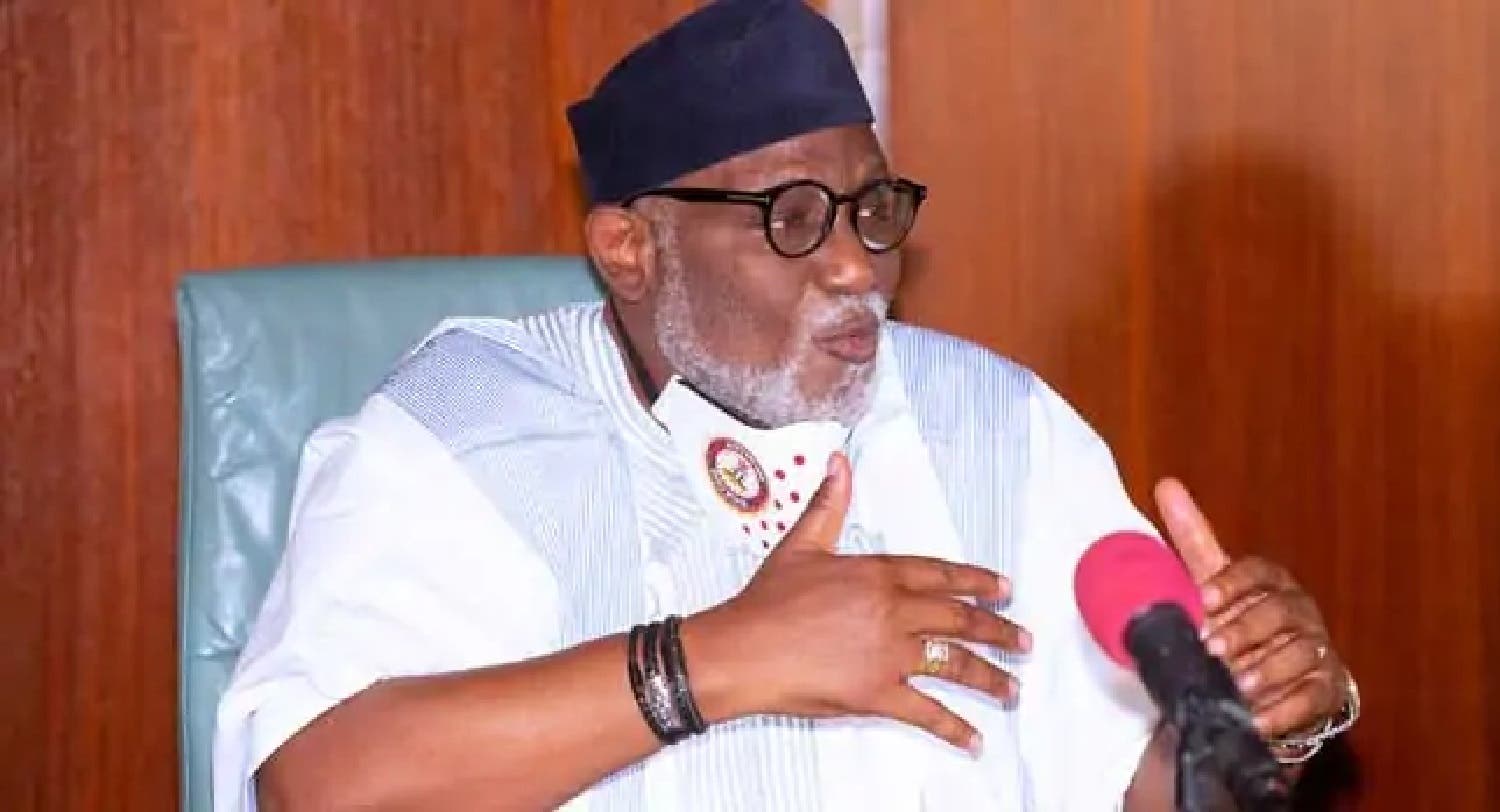The trending issue of restructuring the Nigerian federation – along with the processes of governance to move the country to the proverbial next level, is one key area that will define the rating of the President Muhamadu Buhari administration, positively or otherwise, both for now and at its exit into posterity. It is however doubtful if the leading lights of the administration see the dispensation in such a definitive context given the unmasked indifference and even aversion with which it routinely accords the issue and any conversation around it, in all of its months of existence. However it would seem that the days of playing ostrich by the administration may be running out with the new development in Ondo State where the governor Rotimi Akeredolu, recently issued an ultimatum to Fulani herdsmen to vacate the state’s forest lands within seven days. The governor had cited the association of the Fulani herdsmen with the spate of incessant criminality in the state bordering on kidnapping for ransom and other nefarious acts. In response the Federal government had responded to the ultimatum by challenging both the intention and authority of the governor to issue such an ultimatum. In a statement by Presidential spokesman Garba Shehu, Akeredolu lacked the power to order the herders out of Ondo State as the action “could set off a chain of events which the makers of our constitution foresaw and tried to guard against”.
- Akeredolu, Igboho are playing with fire
- Attack on Fulani: You can’t threaten us with war, Afenifere tackles ACF
Against the backdrop of wiser counsel, Shehu’s statement which borders on a veiled threat remains most insensitive and unhelpful, as it reinforces a negative for the Buhari administration, which is the trending argument that it is viscerally inclined towards rabid, ethnic irredentism in favour of the Fulani ethnic stock to the detriment of other ethnic nationalities that make up the country. Several factors vitiate the statutory and moral integrity of Shehu’s response including the Constitution which vests control over the Ondo State lands and forests under the governor. However, citing the aphorism which holds that ‘charity begins at home’, this column proudly asserts that nobody in his or her right senses can question any leader over expressing sympathies for his home base. Hence Buhari as a Fulani himself cannot be expected to act in denial of his ethnic stock. However the seemingly runaway situation of failed governance and the rising incidence of heinous crimes across the country, especially those that are routinely ascribed to Fulani herdsmen, remains a most sensitive and undeserved denigration of the Fulani stock, which public officers like Shehu are expected to demonstrate well intended sensitivities towards. His reaction to Akeredolu’s ultimatum did not feature such sensitivity.
Apparently glossed over by Shehu in his response is the metaphoric import of the Ondo State scenario in which he was apparently pitching a state against the federal government, and over a matter that was spawned ab initio purely by the failings of the latter. By virtue of the exclusive and concurrent schedule of responsibilities of the tiers of governance, internal security of lives and property of all citizens falls under the purview of the federal government. It is for this reason that the President is vested with the status and powers of the Commander – in – Chief of the Armed Forces as well as the head of the Police and other paramilitary establishments. By this consideration, all the incidents of threats to the internal security of the country including Ondo State such armed banditry, kidnapping for ransom, cattle rustlings and assassinations, (just to name a few), demand attention as well as prompt, needful action from the federal government.
As avoidable as it is, the Ondo situation remains of particular significance given that it is one of the six South West states which in January 2020, responded to the security failings of the federal government by launching the Amotekun initiative. The Amotekun initiative had attracted resistance from the federal government initially before the latter backpedalled, apparently in the face of its own failings to protect the country adequately.
For the purpose of clarification it is important to note that Shehu’s take on Ondo betrays a striking disconnect between the concerns of the political class and the ordinary Nigerian citizens who co-habit in every nook and corner of the country in oneness – trading among themselves, intermarrying and blending without much ado over the ethnic and cultural antecedents of their neighbours. In fact if the ordinary Nigerian has any grouse with a fellow citizen, it is mostly against the political leaders who they commonly see as evil oppressors, rather than their fellow equally, politically betrayed compatriot from a different ethnic stock. Interestingly, in their daily interactions, Nigerians from various ethnic roots even share and enjoy rude jokes about their neighbours and political realities in the country, as inspired by the inanities of misguided elements of the political class.
Referring to Akeredolu’s ultimatum to Fulani herders in Ondo State, the circumstances qualify it to be more as an effort at stemming a rising wave of criminality which affects all residents of the state, than an assault on the interests of the Fulani there. From a demographic perspective there are more Fulanis in Ondo State than the smaller set of Fulani herders, just as the criminal elements among them may be a most inconsequential subset, but whose nefarious activities – carried out exclusively or in collaboration with co-actors from other ethnic stock, are now drawing undeserved ll-will towards Fulanis in general.
Meanwhile, in a wider yet more proximate dimension, the Ondo State scenario draws attention to the sensitive issue of restructuring the country which remains fixated at the heart of political conversations in Nigeria today, even as it seems far from the priorities of the Buhari administration. It is significant that not only is that the restructuring conversation predates the present administration, but has also suffered significant mis-contextualisation. Going by the thrust of much of the contemporary conversation on restructuring, the focus seems to dwell more on the reconfiguration of the political structure of the country. Meanwhile how such a dispensation alone will change the Nigerian’s attitude to public life and service remains a mystery. The problem of most Nigerians today borders less on how many states or regions are in the country, and more on how to enjoy life under an atmosphere of good governance as well as security for life and property. This is where the present administration has failed for, and has by default allowed several untoward circumstances that threaten the corporate existence of the country to thrive.
It is remarkable that restructuring of the country at various stages and in different forms had been on-going since the days of Frederick Lugard, who amalgamated the country into one administrative unit in 1914. Changes in the country had been taking place in its politics, geography and economy. On coming to power however, the present administration stalled on the course of restructuring especially in respect of even allowing for the clear cut provisions of the Constitution to hold sway, by elevating the nuances and idiosyncrasies of its leading lights above the sacred provisions of the Constitution. In the process it achieved little beyond delaying some stages of the restructuring dispensation which had been going on since the founding days of Nigeria as a country.
Put in graphic context, by failing to follow through with the momentum of the restructuring conversation and needful action, the administration had acted like a striker placed in a vantage position during a football match, and who declined to score a goal after the ball had been passed to him or her. Hence while the failure to score the goal may earn the player and the team a setback, the team can still move unto a different match even without that player.
In the final analysis it will be helpful for Garba Shehu and his co-travellers to appreciate that the Ondo State scenario is only a metaphor representing a growing resolve by the rest of the country to adopt self-help measures to combat serious crimes in the face of abysmal failure of the federal government to do the needful. Hence, only decisive action by the government to improve security of lives and property across the country, will prevent the onset of the “chain of events which the makers of our constitution foresaw and tried to guard against”, just as Garba Shehu himself had warned about.

 Join Daily Trust WhatsApp Community For Quick Access To News and Happenings Around You.
Join Daily Trust WhatsApp Community For Quick Access To News and Happenings Around You.


